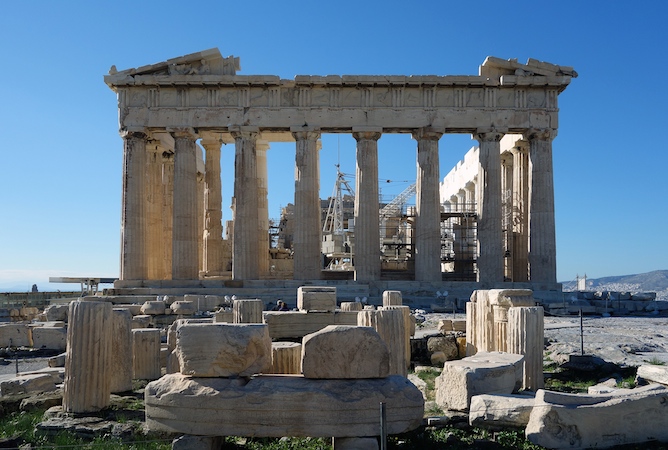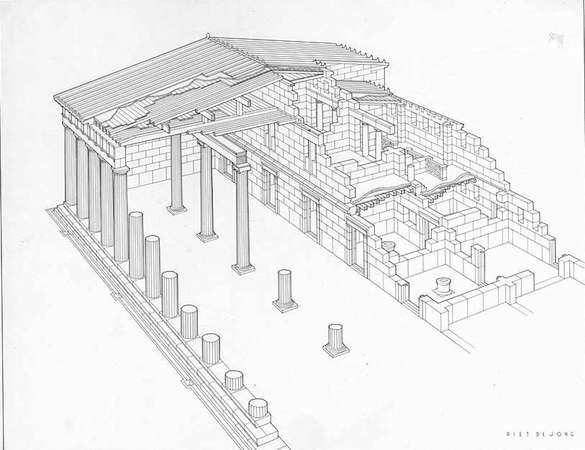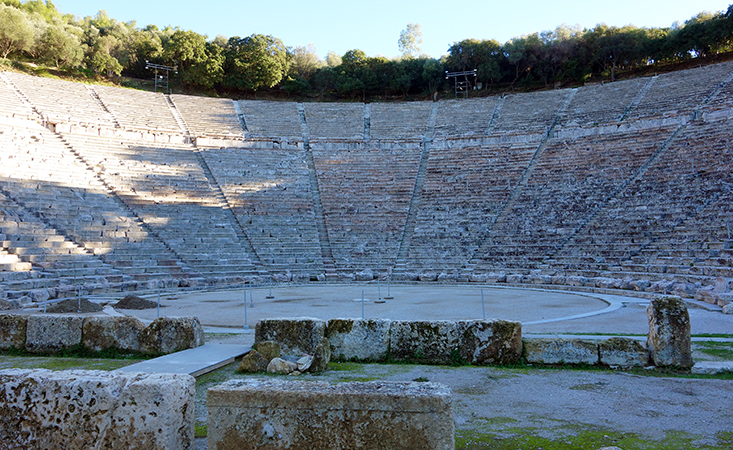About a month ago, I witnessed a truly magical event- the Chestnut Hill Harry Potter Festival. his is an annual festival held by the Chestnut Hill College on a street in Philadelphia. It has been going on for a few years, but this was the first year they shut down the whole street, and, coincidentally, the first year I attended.
The first thing I noticed when it began- the people. Everyone had some sort of Harry Potter paraphernalia. This included me and my possy; me, in Ravenclaw robes, wand in hand, Ravenclaw sweat pants, and a Harry Potter t-shirt on; my best friend, Samantha, in a Hogwarts varsity jacket (which is mine); my two sisters (their names Catherine and Rebecca) in Gryffindor robes; Catherine’s friend, Alex, and Rebecca’s friend Lorayne, I don’t remember what they were wearing (I think it was some sort of robes as well); and my mom, I also don’t know what she was wearing. Everywhere I looked, there were young kids dressed as owls (that one was great!), golden snitches (also adorable!), and little Harry Potters (there were even a few Dobbys!); elaborate costumes were around every corner, and not all of them were workers (there were people there only to be dressed as characters, through the college).There was a fantastic Professor Sprout (she even had a little mandrake sitting in a flower pot!), Hagrid, a few Bellatrixes, and even a Newt Scamander (this was my personal favorite, even though I only saw him from a distance). Towards the very end, two attendees walking together were dressed as Rita Skeeter and Gilderoy Lockhart, arguably two of the best costumes from the whole day.
Among the various activities throughout the day, there was a bird show! They had a few different owls, which they showed around to the awe-filled crowd. My mom was especially happy, as she loves owls. Like a lot. And everywhere you looked, there was advertising for a certain campaign, the slogan "Make America Magical Again" plastered on every wall- Harry Potter for President. This was campaigned throughout the whole day, with pins and posters at different locations. And while Harry Potter may not be from America, and could therefore never be president, I do think sometimes Americans need just a little more magic to brighten up their lives.
“It’s always fun to go to something like this,” my mom began, “where everyone has the same interest and are passionate about it…. And you can kind of be like one with the crowd.” It reminded me of the midnight release of Harry Potter and the Cursed Child; everyone was so excited, wanted to be there so badly, and was just as much as a Harry Potter fangirl as I was. My mom continued, saying, “Even though you don’t know everybody, you feel like you kind of have a little bond with them, because you’re all just a little crazy, over the same thing.” I have a very strong suspicion that “crazy” was directed at me.
“I liked that everyone there was, like, a nerd like me,” included my sister Catherine. “They were all dressed up and there were so many cool cosplayers.”
“My favorite part,” added Alex, “was watching the Quidditch games, because that was very intense. I don’t even know who won, but it was fun to watch.” And they’re right. A huge part of the day was Quidditch- a short bus ride (although the ride back was long because of traffic) away from the main street were three or four fields, each painted for Quidditch matches. Unfortunately, there were no flying brooms (that would have been great, though). Instead, each player had a pole-like stick that they had between their legs as they ran. From what I watched, I gathered these to be some of the rules:
- The ball (called a Quaffle) can be used to score from either the front or the back of the goal posts (three tall rings the Quaffle was thrown through, like in real Quidditch).
- If a player gets hit by a bludger (thrown by players on the opposite team), they must remove the stick from between their legs, run to their team’s end of the court, and tap one of their own goal posts before being allowed to re-enter the game.
- Once the snitch was “released,” (it was actually just a guy dressed in all gold, running around with a “tail”), the first team to grab the tail “caught the snitch.” There was some other rule about this as well, because one team got the “tail” but it didn’t count- I don’t know why
There were a dozen teams or more (probably more), and oftentimes the team players had names from the books on their shirts, last-name style (names such as “Potter,” “Krum,” and things like that).
It truly was a magical day. And that’s what Harry Potter is to me- magic. I read the entire series between my third and fourth grade years, and instantly fell in love. I waited (and still am waiting) for my Hogwarts acceptance letter. I know what house I would be in (Ravenclaw, the best house), what my wand would be, my patronus (an eagle) and what house I would belong to in the North American wizarding school (it’s called Ilvermorny, and I am a proud Pukwudgie)- all this information courtesy of Pottermore, J.K. Rowling’s official site for all things Harry Potter. Butterbeer is a regularly-made drink in my house, and my brain is filled with (somewhat) useless knowledge and headcanons about the Harry Potter universe. Ultimately, Harry Potter has shaped my life- I grew up with these characters. They taught me to embrace who I am, and to stand up to those things I am afraid of. But, most importantly, they taught me about love, hope, and that the future can always be brighter, no matter what may be happening now.










 Whether you're learning, or just going about every day life, Greek culture always seems to pop up everywhere we look. A lot of our English culture is based upon the ways of the ancient Greeks and Greek mythology, and some people may ask "why? They're just some silly myths." Greek myths are epic tales about Gods and Goddesses. They are meant to reveal a lesson, moral, or even warning in the end. They often reflect on humanity in the form of a parable. Rarely do they have a happy ending, and they are not exactly written for entertainment. They are written for a higher more important purpose, and are used to pass down lessons without being boring.
Whether you're learning, or just going about every day life, Greek culture always seems to pop up everywhere we look. A lot of our English culture is based upon the ways of the ancient Greeks and Greek mythology, and some people may ask "why? They're just some silly myths." Greek myths are epic tales about Gods and Goddesses. They are meant to reveal a lesson, moral, or even warning in the end. They often reflect on humanity in the form of a parable. Rarely do they have a happy ending, and they are not exactly written for entertainment. They are written for a higher more important purpose, and are used to pass down lessons without being boring.






